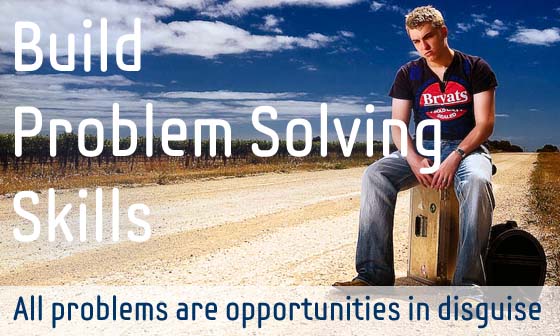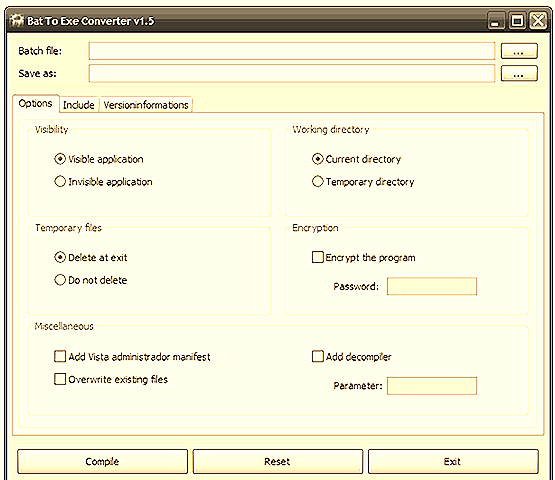Much as you would like a problem free life, it’s not a realistic wish. You can even say from a philosophical point of view that life’s main purpose is in our finding our solutions to the problems that consistently come to us. A problem can be small and simple or complex and big in nature. In our previous posts we have published many tips regarding email writing skills, leadership skills, technical writing skills and decision making skills. It may seem like the easiest solution to bank on our experience and use the same solutions that helped solve previous problems, but problems are usually not of the same kind and it is not necessary that what once worked well will do so for all problems and at all times. So it would be a great idea to strengthen our problem solving skills as it is a life support skill.

1. Tracking the cause of the problem: Finding out why the problem surfaced in the first place is important to know. This helps you address the problem from its roots and ensure you do not have a repeat situation at hand in future. You may need to ask yourself some key questions such as ‘what exactly happened, why it happened, and how to ensure it doesn’t happen again. When faced with complex and huge problems, it helps to break down the problem into small parts that can be examined individually and you can fix solutions for each of these small parts thus solving the entire problem.
2. Inductive reasoning: This is a method by which you make some observations that are based on facts and conclusions are drawn from the observations. The more experienced you are, easier it is to induce conclusions from the observations made, while keeping an eye on new factors or changing environments. There is the possibility of the conclusions going wrong if the basic observations made are wrong.
3. Lateral thinking: Developing this skill will enable you to think creatively or look for ‘out-of-box’ solutions. This is a method where you address a problem indirectly by using thinking process that may not be traditional and by seeking ideas or reasoning that may not be obvious. Through lateral thinking you aim to get the situation to a place or level that it should ideally be at. The process encourages you to challenge the status quo of a problem so that new ideas surface, it propagates that you seek solutions that don’t come to your mind initially, this process helps turn problems into opportunities.
4. Consider all that is right: This skill will enable you to consider all aspects of the situation or event or person that is good and improvise on them to add more value to the future. Firstly, you start by defining the situation and looking at all the positive aspects, then you analyze what worked well in the past and what is working fine now, formulate a vision which describes how you might want the situation to be, then try to bring that state of being into a reality. This method helps you look at the same situation in a different but positive light, you learn to value and appreciate the aspects which otherwise you have overlooked.
5. Deming cycle: A skill that will help you find solutions in a methodical manner is the Deming cycle. First step is to plan by identifying the problem, the causes and any related dependencies that you will need to consider. Next step involves action; here you generate solutions that seem workable and select the most suitable one by probably doing an Impact Analysis and test how this solution works on a small part of the problem. This acts as a trial process and helps you avoid any big losses when you apply it to the entire problem, event or area. Gain observations from the pilot test and accumulate learning. Finally implement your idea and act upon it. This can be an ongoing process and improvisations can be possible on the basic idea that solves the problem.
6. Think logic: You may get carried away by the problem so much that logic and reasoning get lost in the chaos. Conclusions based on assumptions without logic may end in bad decisions and choices; thus complicating the problem more than simplifying and breaking it down. When faced with a problem, you will quite naturally explore all statements and arguments in trying to find a solution. So in an argument the statements that show proof for the conclusion of an argument should fully support the conclusions drawn. You just need to be alert and not let your reasoning fall flat, ask questions to dissect every aspect of the problem or solution before you accept the final decision.
7. Seek various perceptions: Often than not when you are immersed in finding a solution to a problem, lack of various perceptions may act as a handicap. Each of us have our own perceptions and the more the number of heads involved in seeking a solution, more varied will be the options or alternatives available. Also, the opportunity to look at a matter in varied forms and viewpoints reduces the chances of making errors or wrong judgments, thus avoiding us from adopting an unsuitable answer for our problems. This skill will prepare you to come up with well-rounded solutions. Though it takes a lot of time, it’s an organized process.
8. Make use of your experience: Experience gives you a fair good understanding and hence are formed ‘rules of thumb’. The rules of thumb are basically your own learning from previous similar experiences which you use when faced with a similar situation. This method however has certain restrictions and hence you may need to exercise caution when you apply them to a situation where the risks are great. This may also be looked upon as a trial and error method as you build your problem solving process using some rules of thumb as a starting point.
9. Focus on solutions: The more we give attention to a problem the more we may become overwhelmed by the magnitude or the complexity of it all. It is possible in such times that our focus is stuck to the problem rather than being creative and finding solutions for it. We see more of what we seek, so when your direct your thoughts and energies on finding positive outcomes, that is what will come to your mind. You need to practice this mindset consistently in order to be able to focus on the solutions.
10. Foresight about the success of solutions: One of the key skills in solving problems is also to figure out how a probable solution will work once implemented. This saves resources, time and energy and prevents the occurrence of any future problems. Also failure of previous solutions indicate patterns that are set which can be avoided or followed. This skill asks for your research capabilities and analytical mind. To a large extent failures have valuable points and learning to offer and open up a wide array of solutions themselves!

